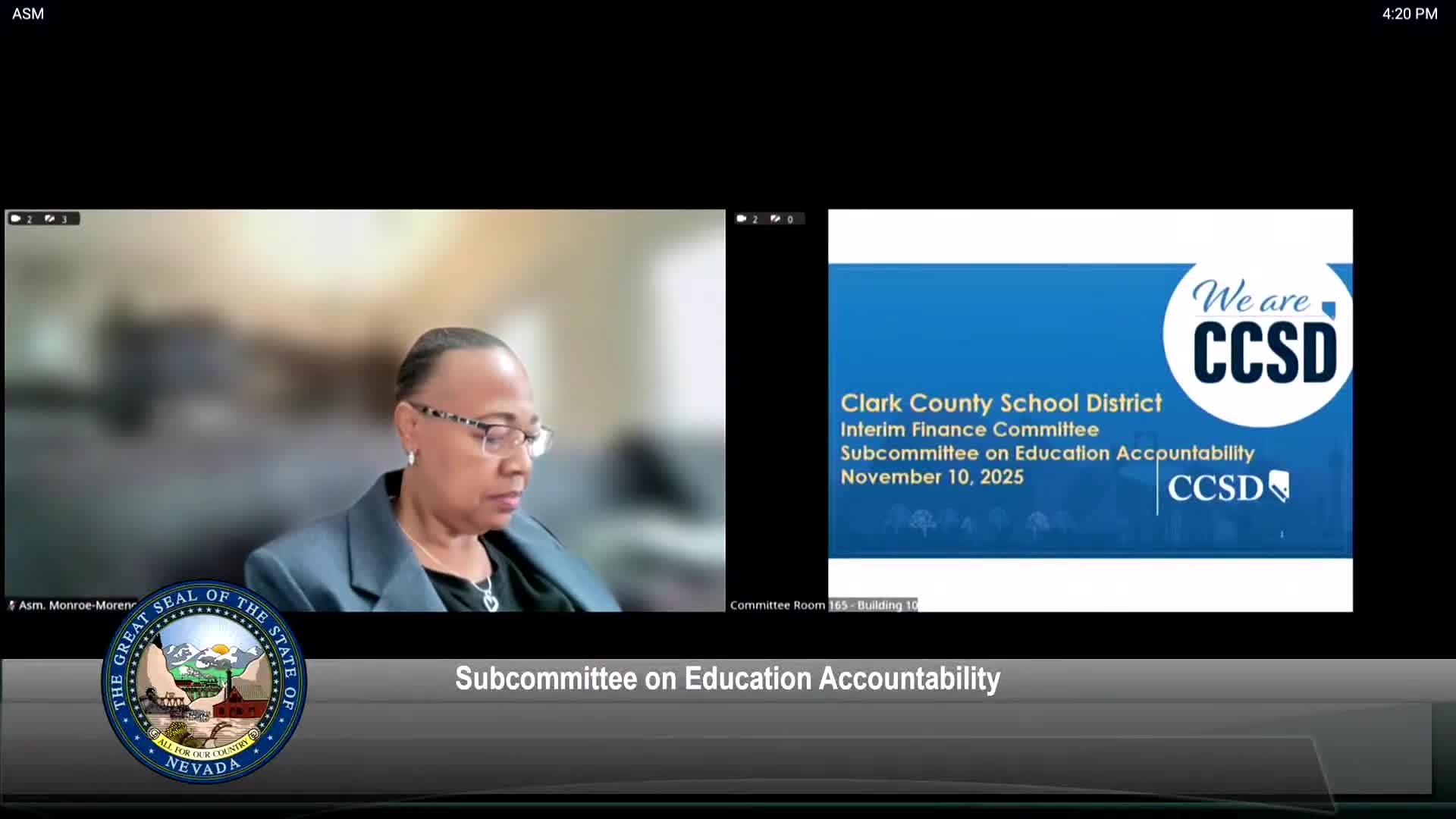Clark County reports proficiency gains, steep hiring and lowest vacancies in a decade
Get AI-powered insights, summaries, and transcripts
Subscribe
Summary
Clark County School District credited recent legislative investments and district initiatives with increased ELA and math proficiency, higher star ratings and a surge in hiring; district leaders warned that expiring one‑time funds and enrollment trends will shape future budget choices.
Joan Ebert, superintendent of the Clark County School District, told the Interim Finance subcommittee that the district has used recent state funding to standardize high‑quality instructional materials, implement the science of reading, and invest in coaching and differentiated supports. Dr. Jesse Welsh and CFO Justin Dayhoff reported broad proficiency gains across grade bands, significant improvements on the Nevada School Performance Framework (136 schools improved; 48 reached 5 stars), and expanded access to dual‑credit and CTE pathways through partnerships with NSHE campuses (UNLV, UNR, Nevada State University, College of Southern Nevada).
Dayhoff said Clark hired nearly 1,395 licensed professionals and 873 support professionals in 2024–25, resulting in the fewest teacher vacancies in over a decade (fewer than 300), with nearly half of remaining vacancies in special education. Clark is running targeted paraprofessional‑to‑teacher cohorts (in partnership with UNLV) to fill special‑education shortages and continues statewide recruitment efforts. Dayhoff cautioned that many of the gains were supported by one‑time or time‑limited funds (including ESSER and SB500 appropriations), and that expiring federal resources, enrollment drivers and pension and inflationary pressures will make future planning difficult.
Committee members asked about dual‑credit transferability and the district’s phone policy; Clark said memoranda of understanding with NSHE campuses keep per‑credit costs low and that while dual credit expands access, transferability into selective honors programs depends on institution and program. Clark described a phone policy restricting device use during instructional time with signal‑blocking pouches and school‑level implementation options.
